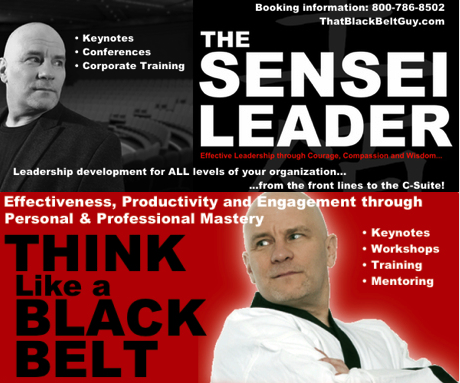 How many Black Belts does it take to screw in a light bulb?
How many Black Belts does it take to screw in a light bulb?
A hundred.
One to actually perform the operation, and 99 others to brag about how they would have it done it better.
Substitute leadership experts for black belts in this joke and you’ll need to multiply by 1,000.
The absolute last thing this world needs is another leadership style. We’ve got plenty of leadership experts, and it seems as if every few weeks, one of them develops a new style, method, or theory that every leader must adopt immediately—or they’re doomed.
Today’s leader cannot be limited by one style.
First of all, no one style works in every application.
You may be leading a group made up of individuals with a wide variety of cultural backgrounds and experiences.
Geert Hofstede, the founder of the Institute for Research on Intercultural Cooperation has studied the leadership styles in countries all over the world. If anyone would have the qualifications to identify a unified theory of leadership, it might be Hofstede, but he writes;
“I am not offering a solution; I only protest against a naive universalism that knows only one recipe for development.”
No—there is no unified theory in leadership. Today’s leader must be open minded, well informed and ready to integrate various styles and techniques to the task, and the people at hand.
The most effective martial artists are thieves. Leaders should be thieves, too …
… at least when it comes to adapting styles and techniques.
 The best martial artists don’t rely on one particular style or method. We steal and adapt techniques whenever and wherever we can to become more powerful, effective and efficient fighters.
The best martial artists don’t rely on one particular style or method. We steal and adapt techniques whenever and wherever we can to become more powerful, effective and efficient fighters.
Bruce Lee had this advice for martial artists:
“In primary freedom, one utilizes all ways and is bound by none, and likewise uses any techniques or means which serves one’s end.”
Lee’s advice works just as well for leaders.
This means adapting your methodology to the particular situation at hand and being adaptable to the conditions and circumstances you face in any given moment.
The fastest way to find the technique that won’t work is to be inflexible or dogmatic, to limit yourself to one particular style or technique. In the dojo and in business, these limitations are often an unintended consequence of tradition.
I found this gem on LinkedIn:
“What is the greatest barrier to growth and progress?
“The words: We’ve always done it that way.”
Tradition is important, but tradition should inform, not limit our response to current circumstances and conditions.
Learn from past tradition and styles, but also be open to advancing those styles when you can, adapting them to new times, needs, and opportunities. Be willing to discard anything that just doesn’t work anymore.


